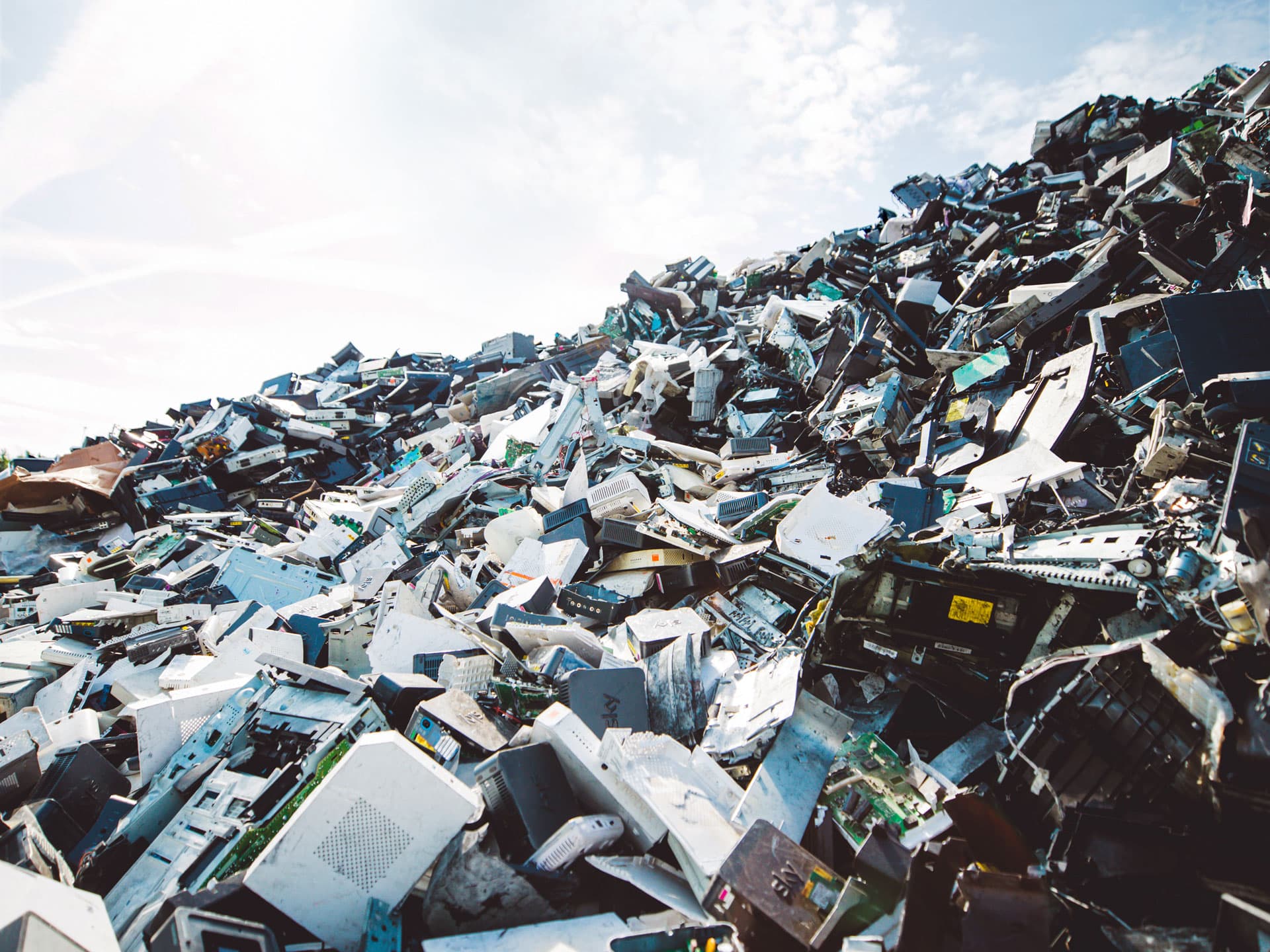Design for Recycling
Inconvenient truths of the circular economy
Everyone’s talking about recycling. It feels like Europe is the global leader in this area. “Unfortunately, that’s not always the case,” says metallurgy and recycling expert Prof. Dr. Dr. h.c. mult. Markus Reuter. He’s been researching and implementing system methods and technology in this field both in academia and industry for over 35 years, sometimes drawing attention to inconvenient truths and challenges – but also pointing out opportunities for a better future.
Prof. Reuter, we’re now recycling more than ever. Isn’t that enough?
Reuter: Recycling doesn’t end when dropping something into the garbage can. True recycling recovers and produces valuable, high-purity raw materials from old products for reuse in high-tech products. Consider your smartphone: it is a complex functional mix of metals, materials, plastics, and glass. One does not require much of an imagination to picture how complex it is to physically and chemically separate these components again to ultimately retrieve the metals. It’s just about as difficult as recycling your morning cup of coffee into its ingredients, so pure water, sugar, milk, and coffee. There are no simple answers here – at some point, the amount of effort also outweighs the value of the metal content. This knowledge should prompt a consciousness shift in our utilization of our limited resources.
That’s why the EU is pressing ahead with the circular economy (CE).
Reuter: The image of the closed loop of the CE is a convenient one. It conveys the impression that everything that enters the cycle also emerges in a way that can ultimately be used again without the use of energy. The inconvenient truth is that closing the loop is impossible! Therefore, an honest discussion involves speaking transparently about losses in the process: in the form of energy, metals, and dust, for example. There are technological and economic limits to closing the loop. As a result, policy conditions are necessary that promote recycling instead of hindering it.

"True recycling means recovering and producing valuable, high-purity raw materials from old products for reuse in high-tech products."Prof. Dr. Dr. h. c. mult. Markus Reuter
What do you mean by hindering?
Reuter: Consider the example of lead. Yes, lead is unfortunately toxic, and this is prompting the EU to consider banning its use. But it is also a fact that lead – like copper – is crucial as a metal collector in multi-metal metallurgical recycling. It is a key enabler of the CE, as it recovers metals such as gold, silver, bismuth, and antimony. Therefore, the circular economy paradigm is in danger without lead. This is often forgotten and overlooked in today’s contentious and often unfortunately superficial discussions on circularity. The result of premature policy decisions and bans of metals opens up the risk of metal production migrating away from Europe. This would severely disrupt our control of metal production and recycling.
Are there any positive examples?
Reuter: Absolutely. For instance, there are the collection systems for recycling materials in Europe, where we’ve already made a great deal of progress when compared internationally – this would be inconceivable without European standards and approaches. Gains can also be achieved by considering recycling during product design.
And what could that look like?
Reuter: As stated, one can never recycle 100 % of any given product; those are the laws of Mother Nature. But we can optimize a lot if we link product design with metallurgy knowledge and calculate in detail in advance what can be recycled later. If a product is manufactured smartly into different modules, for example, the raw materials could be distributed in such a way that each module could be directly processed with suitable technology when metallurgically processed. This would render the recycling of many valuable metals easier, while also maximizing energy efficiency.
NO LEAD, NO CIRCULAR ECONOMY
Lead – like copper – functions as a key metal collector in multi-metal recycling. Lead makes the circular economy (CE) possible in the first place by helping recover metals such as gold, silver, bismuth, and antimony.Are manufacturers already doing this?
Reuter: Fairphone takes this into account, for instance, but they are still an exception. While there’s a lot of talk, the imperative isn’t there yet. This is why we’re working on a recycling label to provide information about products’ actual recyclability to the consumer. We have developed simulation models that digitally twin the entire extremely large value chain, allowing products’ actual recyclability to be calculated and improved. This enhances transparency for the consumers to assist them in making choices, a key step to precipitating change.

Improved product design and metal recycling have to be the solution. There is a growing understanding in today's society that both manufacturers and consumers have to contribute to the responsible use of resources.
What can the smelter industry contribute?
Reuter: Smelters are a key enabler of the material cycle within the CE, as they are familiar with technical and economic limits. Routine communication with product manufacturers is just as important as dialogue with the public about what is feasible and what is not; existing digital twins help with this.
For Europe, we need multi-metal recovery solutions in the CE. We speak about the metallurgical infrastructure’s criticality for the CE. In this context, smelters are the drivers to agilely manage the extraction of different metals simultaneously and maximize their respective recovery.
I’ll close with the crucial question: Who should ultimately pay for this?
Reuter: I believe there is a growing understanding in today’s society that both manufacturers and consumers have to contribute to responsible resource consumption. However, this always comes at a cost. And this cost has to factor in the ability to disassemble the product at the end of its life cycle. In the Netherlands, for example, the costs for the collection and recycling of waste electrical and electronic equipment are borne by the producers and importers. This begs the question: Should the recycling fees that are incorporated in the product price become significantly larger? As metallurgists, we know what refining charges are necessary for processing such complex materials. Therefore, we could play a key role in transparently informing society about what is possible and what isn’t.
modular design of a fairphone
Thanks to its modular design, the Fairphone is recyclable to a great extent. www.fairphone.com
